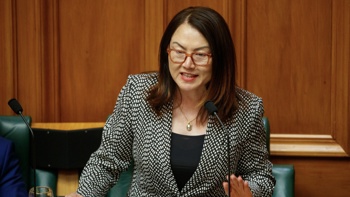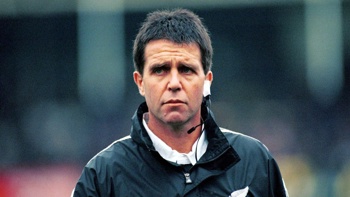By Adam Burns of RNZ
A Port Hills resident who suffered fire damage to his home seven years ago says plantation forestry is becoming too dangerous in the area.
Firefighters continue to toil round-the-clock in an effort to snuff out the massive blaze which began nearly five days ago.
An overnight scrub fire at Waikari Valley in north Canterbury’s Hurunui district has added further fuel to the region’s already stretched resources.
Although the impact of the latest Port Hills event has not quite been as severe as the wildfires of seven years ago, it has sparked questions about the area’s future, particularly its land use make-up.
Matiu Prebble is now back in his Early Valley Road home after being evacuated last week.
Born and bred in the Port Hills, he remembers the landscape as looking a lot different as a youngster.
This was down to a neighbouring property owner, one of very few at the time.
“When I grew up here in the ‘70s ... he was the only landowner.
/cloudfront-ap-southeast-2.images.arcpublishing.com/nzme/UNVF4XRZENH6PCH3YO5PU7WXBI.png)
Ike Houghton was evacuated from his Worsleys Road home last week. Photo / Adam Burns
- Police speaking to two people seen on walking track before Port Hills fire
- Drones identify hotspots in Port Hills fires ahead of forecast winds
- How did the Port Hills fire start?
- Explained: The bigger picture behind the Port Hills fire
“There were no trees, he hated trees, [he] was a world war veteran and ran everything to the ground basically.
“So there was no opportunity, no fuel for anything in terms of fire.”
But now the Port Hills is a far more populated scene, with forestry, farming and native bush all discernible features.
Prebble, who is an environmental lecturer at Canterbury University, believes the Port Hills is now locked into a fire cycle.
“Plantation forestry is clearly not what we’re wanting to do.
“I mean that came out in 2017 too, plantation forestry is something that we can’t do on the Port Hills because it’s too dangerous.”
Residents impacted by the latest fire have questioned the replanting of pine and whether forestry was an appropriate use of the land.
Christchurch city councillor for the Heathcote ward Sara Templeton said she expects more fires in the future.
“There’s no doubt with climate change, and the hotter, drier and windier summers, and an urban area where there’s a lot of human activity, that it’s likely we’ll have more fires.
“They’ve happened in the past and they will happen again.
“We know that and we can plan for it, we can plant low flammability plants, we can have our communities prepared.”
At a press conference at the weekend, Christchurch City Mayor Phil Mauger and Selwyn District Mayor Sam Broughton were questioned about the use of the Port Hills for forestry and grazing and whether the long grass needed to be cut.
/cloudfront-ap-southeast-2.images.arcpublishing.com/nzme/WRH4C75YBLRYXKFQQ6WXRUBXYU.jpg)
Christchurch Mayor Phil Mauger. Photo / George Heard
Mauger said he had been up in a helicopter to survey the fireground.
“Where it’s been grazed, it doesn’t burn the same as where it’s long grass,” he said.
“[But] we do want to get the Port Hills back to the way they were and unfortunately [part of that is] long grass,” he said.
Ike Houghton had to be evacuated from his Worsleys Road property this time.
He said there needs to be more energy put into overall maintenance.
“Soon after [the 2017 Port Hills fires], they maintained a firebreak, in and around us.
“But in the two years after they were maintaining it, it’s now grown to the point where it’s dangerous.
“It surprises me that they don’t keep maintaining it, because you go to places like Wellington, they have firebreaks everywhere.”
There is set to be a community meeting this week about building resilience to fires on the Port Hills.
Prebble said it was time for land use on the Port Hills to adapt to the current climate.
“There’s a whole combination of things going on, let alone the fact we’re in a climate cycle and El Nino, which happen more intensively and frequently.
“This is how things are now, we’ve got to adapt and finding ways of moving forward and changing our thinking about land use.”
- RNZ
Take your Radio, Podcasts and Music with you









